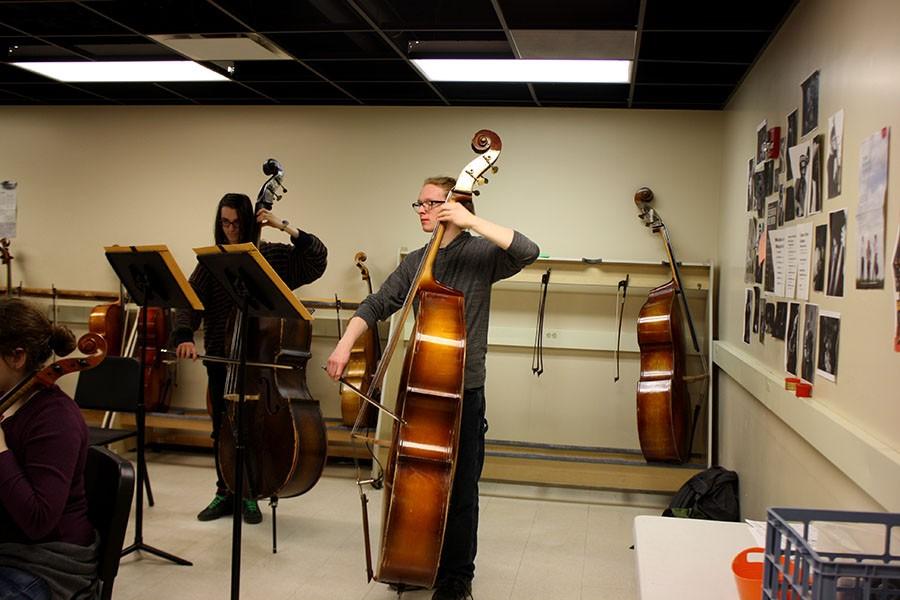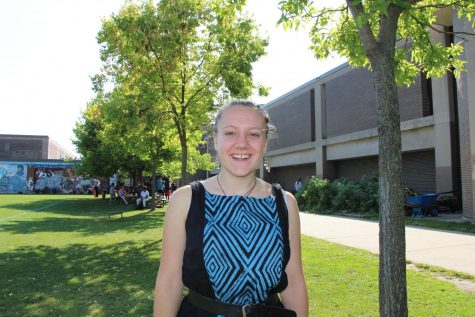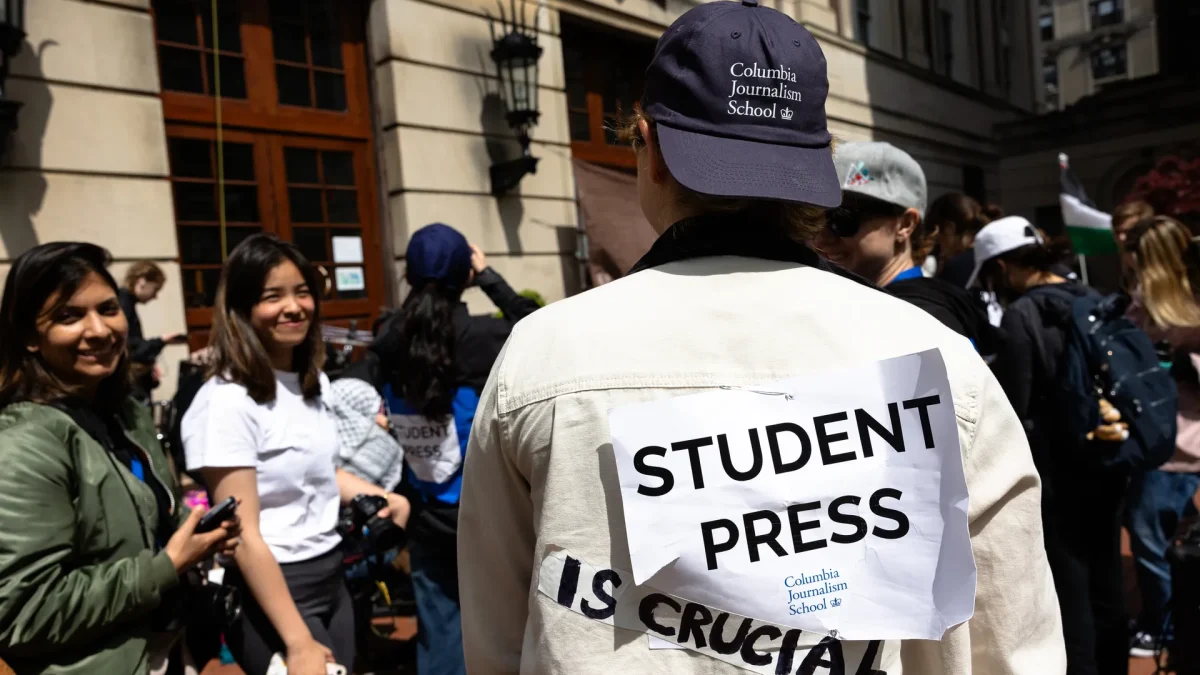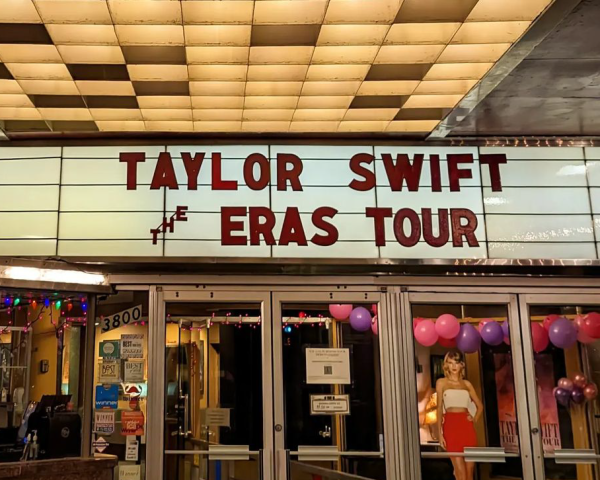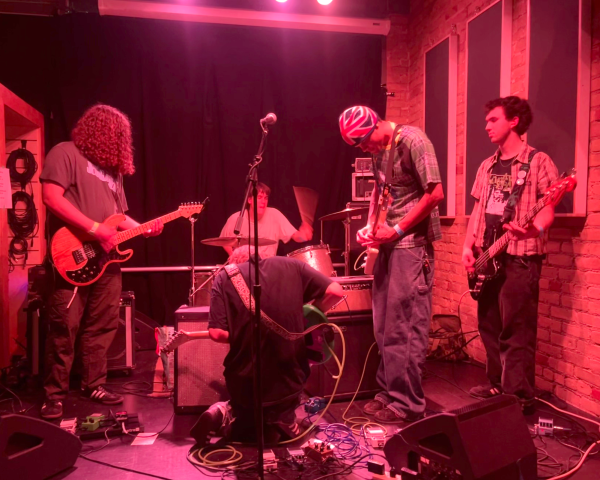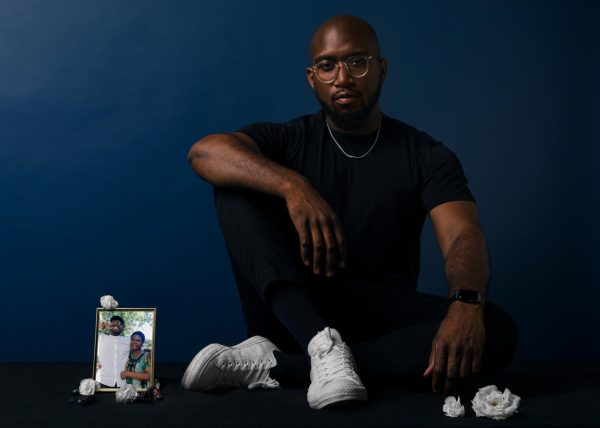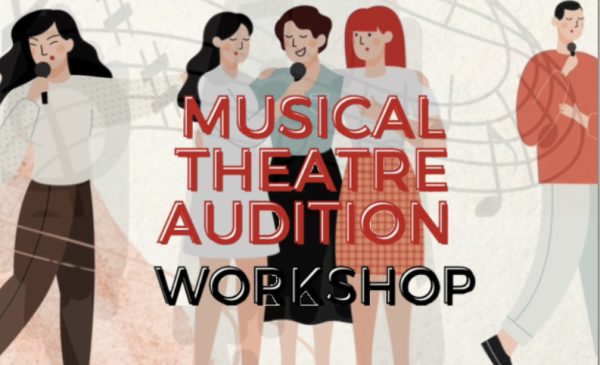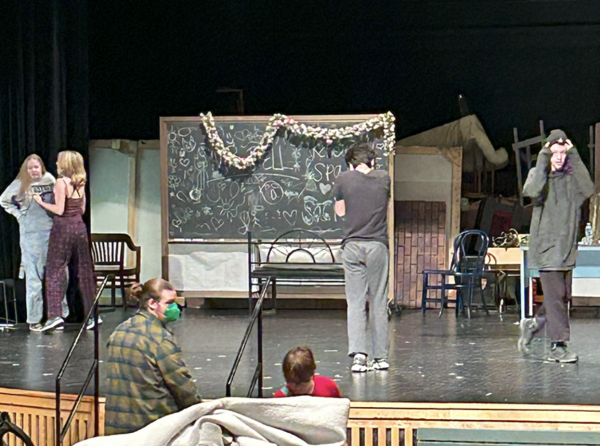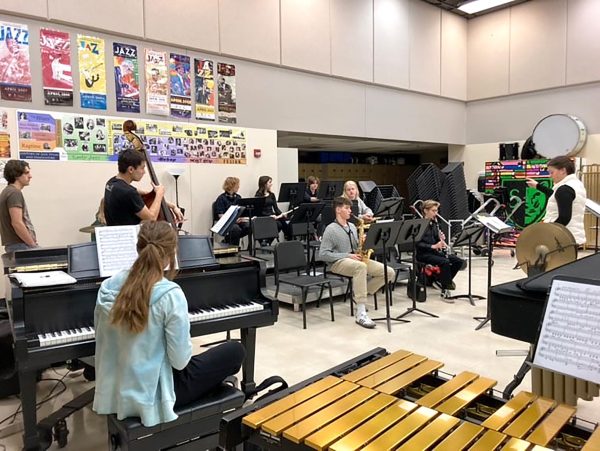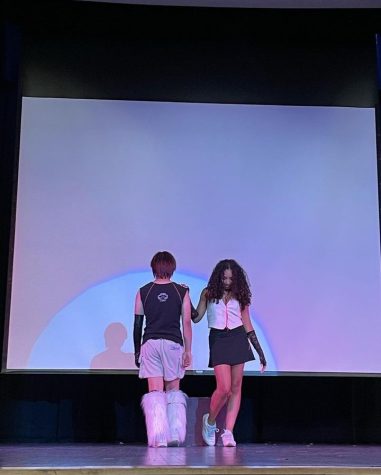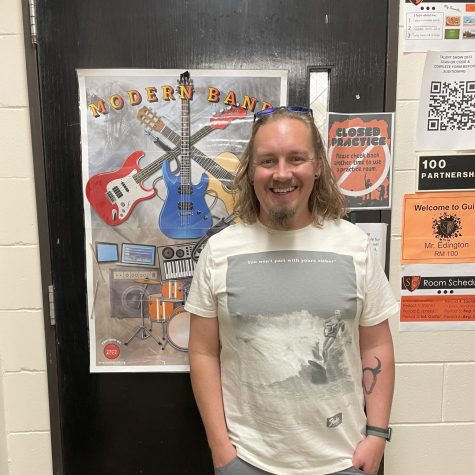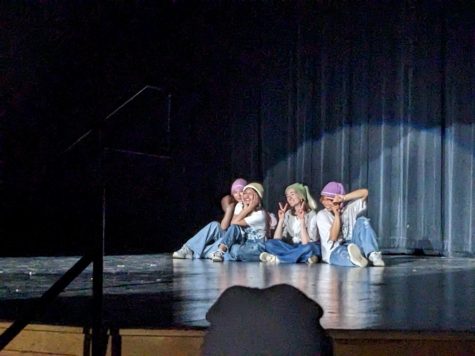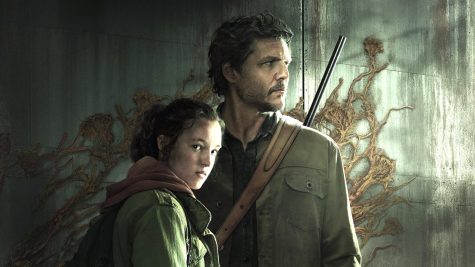Composing strikes a chord with young musician
Bowing his cello gently Arthur Campbell, center practices in Orchestra. Campbell plans on being a composer in the future. “I feel like this year has been kind of like I’ve stepped into the composing world” he explained.
February 11, 2016
When someone hears the word composer, most people tend to think of Beethoven or Mozart. However, composers exist outside of classical music and the 1700s. Some can even be found here at South, such as Arthur Campbell, a friendly soft-spoken senior.
Being a composer can mean many things, from composing music for yourself to play, to arranging other already written music into new formations to just casual improvising with friends. Campbell explains his enjoyment saying, “I like exploring an idea kinda through music”.
Campbell began his music career at age five when he began piano lessons. At thirteen he began to explore the more improvisational aspects of composition, which is something he still enjoys today. “It doesn’t feel like composition,” Campbell says, “[I’m not] deciding things, things are just kind of happening”.
Most of the time however, writing composition is much more complicated than that. Eric Sayre, who teaches a music theory/composition class at South that Campbell is part of, explained, “[Composition is] just like any language, you have to get to know the workings of the language.” This particular language can include things such as the spelling of notes and chords and the ordering of scales and key signatures. To learn all the intricacies takes dedication and patience. It’s important to have “the willingness to sit and play the same two notes or four notes in a row and figure out why that sounds right or wrong,” said Sayre.
Another common composition obstacle getting to finish a started piece. “It’s a lot easier to say ‘Oh, this sounds nice and then forget about it,’” Campbell said.
That challenge is something that Sayre’s music theory class has helped Campbell with. The first composition assigned this year was a duet, each student writing music for two different instruments. “It felt like the first kind of real composition I had done,” Campbell said. “Having a deadline made me make a more finished project.”
Despite some of the challenges of composition Campbell still finds a lot of joy in it. “What’s really fun for me is when I feel like I can’t write things down fast enough,” Campbell explains, “That’s the best kind of zone”.
Inspiration for his compositions comes from multiple places for Campbell. “It’s about half like the artists I listen to and half like other people I know composing.” Some of those people are senior Sam Stroup and South graduate Charlie Lincoln who form the band “Yardang”. “It’s like ‘Oh, man these guys are in high school or just in college and they’re making really cool music.” said. “That’s really inspirational for me in terms of having me create stuff.”
For the next four months, you can catch Campbell in orchestra, jazz band or music theory class, playing the lows notes of a cello, keeping the rhythm of the song, and nodding his head to the beat. The future beyond that is a little more uncertain but with plans for music school next year, composition is certainly looking like a part of it. “I feel like this year has been kind of like I’ve stepped into the composing world”, Campbell expresses, “It feels like a more definite part of my life.”

